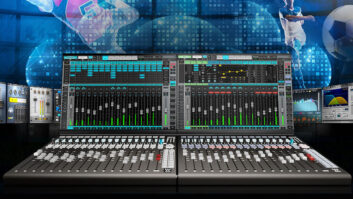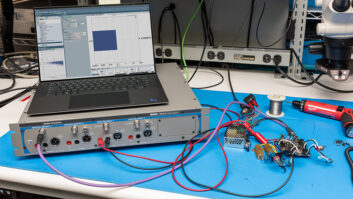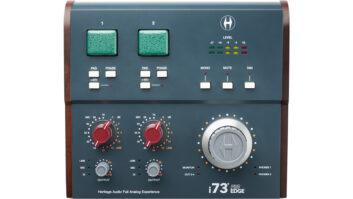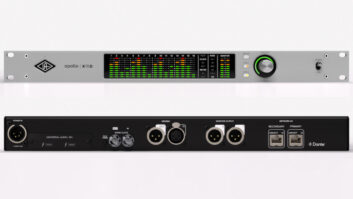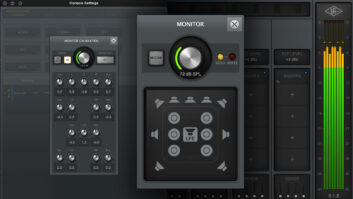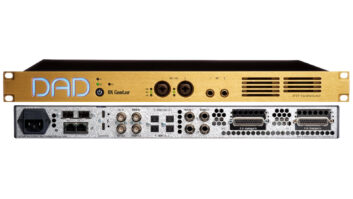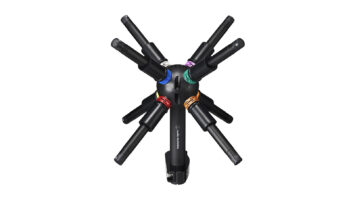
Guthrie Green, a community-focused green space in Tulsa, Oklahoma’s Arts District, brings the best musical offerings from Tulsa and beyond to its outdoor amphitheater, with premium sound in every seat thanks to a new Meyer Sound Leopard compact linear line array loudspeaker system.
Named after Oklahoma native and folk music icon Woody Guthrie and supported by the George Kaiser Family Foundation, Guthrie Green is a staple of the Tulsa experience, hosting performances by national artists like Los Lobos, Lucinda Williams, Kurt Vile, The Pharcyde, and many others, alongside a variety of regional community events, all free to the public.
“Even though our events are free, it did not diminish our desire to provide a high-quality guest experience with excellent sound,” says Scott Bell, Guthrie Green’s production manager.
Guthrie Green opened in 2012 with a small Meyer Sound system centered around M’elodie ultracompact high-power curvilinear array loudspeakers and 600-HP subwoofers, specified to meet the strict weight limitations of the stage’s cantilevered roof. A decade in, the venue was ready to upgrade its AV offerings to support increasingly diverse programming and high-profile visiting artists. Tulsa-based production company TES Productions met the challenge, installing a new Meyer Sound Leopard compact linear line array system that elevates the concert experience for artists and audiences alike.

The new system, designed by Meyer Sound Design Services, centers around arrays of eight Leopard compact linear line array loudspeakers and four 900‑LFC compact low-frequency control elements, supported by four Ultra‑X20 front fills, two Ultra-X40 out fills, and two UPQ-D2 side fills. Everything is managed by the Galileo Galaxy Network Platform and the RMServer remote monitoring server.
“We needed high output with low weight, and Leopard gave us enough output without big, heavy boxes,” says TES Productions Installation Manager Don Worley. “Frankly, I don’t know of another box that would do that.”
The IP65-rated system remains in place from March to December. Because the park is open to the public, safety concessions were made. “We had five subwoofers per side but went with four due to height issues, to prohibit climbing,” Bell explains.
Guthrie Green is bordered on three sides by buildings. “We didn’t have to worry about the typical things that you get into in outdoor amphitheaters,” says Worley. “There really isn’t any living space in that area, and it’s not a big, open area where audio can go everywhere. Leopard was a great solution for that because it’s very controlled. You have a very clear 6dB-down point on each side.”
“With the previous design, we were hitting all this concrete and solar panels and metal architectural elements. And right across the street beyond that is a TV station with a glass-face building,” Bell explains. “The top of the array was overthrowing to get to the steps, and it created these crazy flutters—triplet delays upon triplet delays with the cascading staircase. So, we really leveled off the top of the new main array to shade downward where the grass stops and not activate those harder surfaces, and then used Meyer Sound Ultra-X40 delays to locally cover that area in a controlled way.”
Adding a UPQ full-size loudspeaker on each side of the stage brought focused ambient sound to sidewalk areas. “That made a huge difference on the sides where they do things like food trucks and where people want to hear but they don’t want to be in the middle of everything,” Worley explains. “This single speaker covers a massive swath of the park and delivers such a beautiful midrange,” adds Bell. “I’ve never been pleased by just one speaker as much as this one.”
The system can be expanded by reconfiguring Ultra-X20 loudspeakers and adding ground-stacked 900-LFC control elements plus the original 600-HP subwoofers. “For our large concerts, we have a secondary design where we bring in 600-HPs from the previous system and lay them out at the base of the stairs to alter the LFE experience for different artists and genres,” says Bell.
Worley took full advantage of the Galileo Galaxy Network Platform’s control features, using every available channel and setting up presets that accommodate a range of presentations and weather conditions. “They can simply go from a little lunch thing with a guitar player and a vocalist to a full-on hip-hop show with thousands of people sitting on the lawn,” he explains.
“In Oklahoma, temperature swings and humidity are a real issue,” Worley adds. “If you’re not used to that, you can overcompensate, and it can end up being a problem when the sun goes down. So, we set up some graduated presets that would allow them to go from a hot afternoon to a cooler evening.”
“We’re trying to offer our community the best of the best for free, to the point where we are competitive with a paid experience,” says Bell. “I love the articulate qualities of the Leopard system. All that detail is just so wonderful—to have headroom not just in volume, but headroom in tonality. I think it’s a win in every way.”

